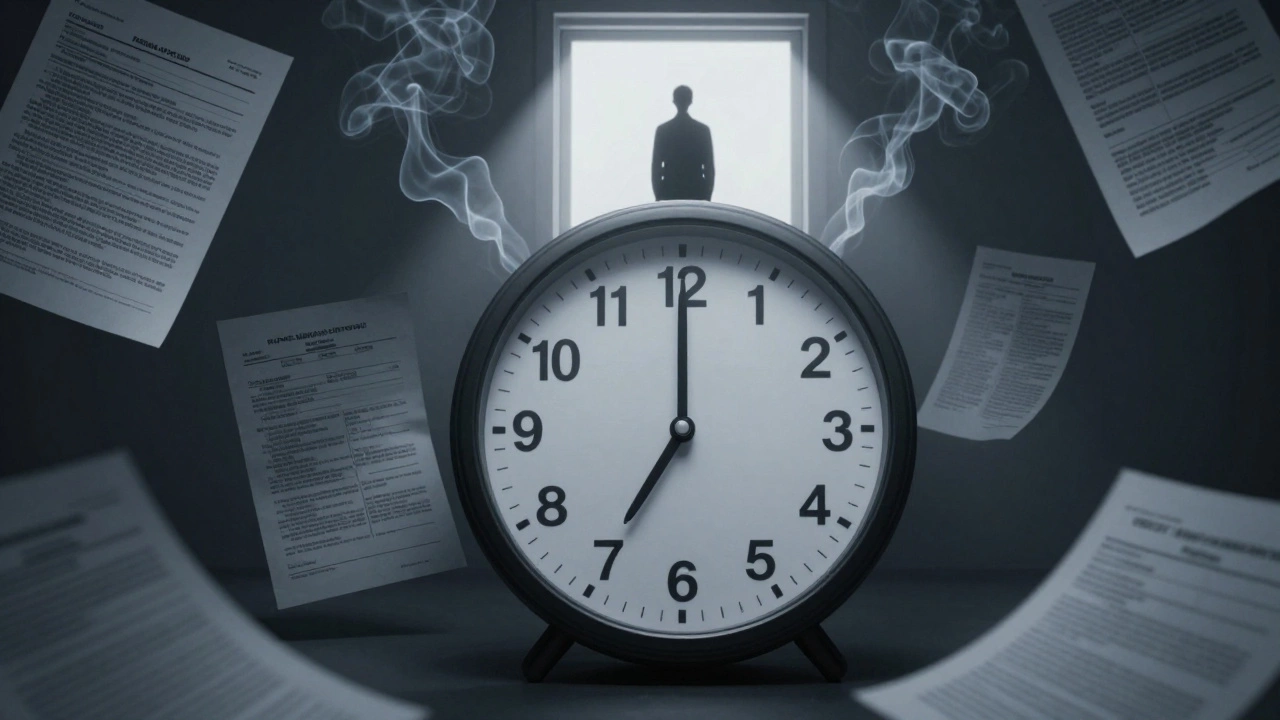Waking up to another bill you can’t pay feels like getting hit by a surprise dodgeball to the face. The truth is, debt follows millions of Americans around day after day. If you lost a job, had a costly emergency, or just got in over your head—yeah, it’s rough. Even guys like me with a steady job and a family (my son Tucker could eat a loaf of bread in a day and not even blink) have felt that weight. And if you’ve tried paying more than the minimum and your balance still barely moves, you know why people look for debt relief companies.
How Do Debt Relief Companies Work?
Debt relief can sound like one of those late-night TV promises: "Never pay your credit cards again!" But legitimate companies serve a real, useful purpose when you’re just drowning. First, there are three main flavors. Debt settlement companies negotiate with your creditors so you pay less than you owe—sometimes half. Debt management companies work more like middlemen; they get you a single payment per month at a lower interest rate or longer term so it’s more affordable. Then there’s debt consolidation, usually a loan big enough to pay off all your debts so you’ve got only one payment left. Feels simpler just saying it, right?
But here’s what you need to know: best debt relief companies don’t charge you up front for something they haven’t even done. According to the FTC, it’s illegal for any company to demand money before they start settling your debts. Good ones also don’t hide their fees, they answer your questions clearly, and they don’t feed you lines about ruining your credit forever. And they NEVER promise to wave a magic wand and fix everything overnight. If it sounds too good to be true, it is.
Most legit companies will want to see everything: your debts, your income, your living expenses. They might create a payment plan for you or put you in touch with accredited counselors. Those counselors might walk you through a debt management plan (DMP), or maybe you qualify for debt settlement if your situation is dire. Each one affects your credit differently, and each comes with tradeoffs—like taxes on forgiven debt, potential collection calls, or even lawsuits from creditors.
Then there’s the big question: what will this mean for your actual monthly payments? In a recent study, the American Fair Credit Council found consumers using reputable debt relief companies saved about $2.64 for each $1 paid in fees. Pretty solid if you’re paying $30,000 in credit cards. But remember: you’ll need to stop using all credit cards, stick to a plan, and sometimes deal with a ding on your credit report for a while.
Comparing the Top Debt Relief Companies of 2025
I’ve talked to a few friends, peeked at review sites, and tracked down honest stories. Here are the companies making waves in 2025:
- National Debt Relief: These guys have a chunky portfolio—over $10 billion settled since they started. They specialize in credit card, medical, and personal loan debt. They’re accredited with the American Fair Credit Council and have a BBB A+ rating. Typically, you need at least $7,500 in unsecured debt. Average client saves 30% after fees, with a 24-48 month payoff window.
- Freedom Debt Relief: A big player with solid results (they say $15 billion in debts resolved). They promise no fees unless they settle your debt. Minimum debt is $7,500, and most plans run 24-48 months. They’ve got nearly two decades experience. BBB gives them an A- rating. What stands out: huge bank of reviews, and lots of educational content.
- Accredited Debt Relief: These folks match you with a debt resolution plan that fits your situation, with staff that are easy to reach. Minimum debt is $10,000. Programs cut your total outstanding debt by up to 50% before fees. Reviews highlight their friendly customer service.
- CuraDebt: Older company—founded in 2000—handles commercial debt and tax debts too. No upfront fees and they’re known for helping people with IRS and state taxes (which is rare in this industry).
- Pacific Debt Relief: Good if you want a more boutique, hands-on approach. They’re great for people who feel overwhelmed by bigger call centers. The catch: minimums may be higher ($10,000+), and they serve fewer states.
Let’s break down how these top companies stack up, because if you’re choosing who’s going to steer your finances, you want to know where they shine and where they don’t.
| Company | Min. Debt | Average Term | BBB Rating | Upfront Fees? | Main Perk |
|---|---|---|---|---|---|
| National Debt Relief | $7,500 | 24-48 months | A+ | No | Strong reputation, high settlement rates |
| Freedom Debt Relief | $7,500 | 24-48 months | A- | No | Very experienced, large customer base |
| Accredited Debt Relief | $10,000 | 24-48 months | A+ | No | Personalized programs, great support |
| CuraDebt | $5,000 | 24-48 months | NR* | No | Business and tax debt options |
| Pacific Debt Relief | $10,000 | 24-48 months | A+ | No | Excellent customer satisfaction |
*NR = Not Rated by BBB
Don’t forget: every company charges for success (usually 15-25% of debt enrolled), but those fees only hit after they do what they promise. If someone’s asking for money before they even settle an account—walk away. Most companies recommend you have a real hardship (job loss, medical problem, divorce) to qualify. Even then, there’s no guarantee everyone settles fast, or gets sued by a creditor while waiting for a settlement.

How to Choose the Best Debt Relief Company for Your Situation
The perfect pick isn’t just about Yelp stars or TV ads. I always look at accreditation: are they members of the American Fair Credit Council (AFCC) or International Association of Professional Debt Arbitrators? If there’s no membership, that’s a red flag. Transparency counts too—are fees, risks, and program terms upfront? Actual support matters as much as a slick website. Are people happy with how they were treated, or do reviews talk about missed calls and upsells?
Interview a few companies before starting. Ask them:
- What fees do you charge—and when?
- Will my creditors still call or potentially sue me?
- How will this affect my credit score short-term and long-term?
- Are there any tax consequences on forgiven debts?
- What’s your average settlement rate?
- How do I track my progress? Do I get regular updates?
- Are you licensed to operate in my state?
If you’re not satisfied with the explanations, try somewhere else. Real reps won’t pressure you, and they’ll never guarantee specific results. And hey—talk to a nonprofit credit counseling agency for a second opinion. Lots of people go into debt relief thinking it’s their only shot, but they might actually qualify for a lower-interest consolidation loan or even bankruptcy protection instead. It’s better to weigh your options before blasting off in one direction.
I always advise: check at least three sources for reviews (Trustpilot, BBB, Consumer Affairs). Look for patterns in bad reviews, not just occasional gripes. Sometimes customers get upset with any negative impact on their credit—forgetting that debt relief tends to affect it before it helps. Big improvement down the road is more important than a short-term dip anyway.
One last thing—know what you want. Is the main goal to get monthly payments down right now, even if it means a hit to your credit? Or are you trying to pay less than the full amount on your debts? Your answer will determine whether debt settlement, management, or consolidation is best for you. Not all companies offer every service, so pick a firm that matches what you actually need.
Debt Relief Tips and What to Watch Out For
People don’t talk openly about their finances—ever notice that? But once you share you’re in over your head, you realize you’re far from alone. In 2025, average American household credit card debt just passed $8,800, according to Experian. That’s up almost 10% in two years. Medical debt is creeping up too, thanks to weird billing and insurance loopholes.
If you’re considering debt relief, here are a few practical steps:
- Assess your debt situation. Grab all your bills, list them out, add up those balances. Include credit cards, personal loans, medical debt. Don’t skip anything.
- Figure out your goals. Are you trying to be debt-free as soon as possible, or just lower payments? Is credit score a major concern?
- Set a budget. Map out monthly spending. Debt relief payment plans only work if you stick to them. Account for unexpected expenses—I mean, when was the last month you didn’t get hit with a surprise dental bill or car repair?
- Do your homework on companies. Verify accreditations. Check for lawsuits or regulatory actions against them. Federal Trade Commission archives are public—search your company’s name online.
- Be wary of scams. If someone guarantees to wipe your debt away instantly, or wants payment up front, they’re not legit. FTC has shut down dozens of these in the past few years.
- Get everything in writing. Never rely on a phone promise. Demand written confirmation of fees, timelines, promises.
- Don’t forget the taxman. If any debt gets forgiven, the IRS might consider that taxable income. Ask your company (or a tax pro) about what you’ll owe.
Some people pay off debt without a company, just by negotiating directly. If you’re not intimidated by phone calls and paperwork, that’s an option. But a good debt relief firm saves time, headaches, and, yes, sometimes keeps you from dealing with relentless collector calls. There’s no one-size-fits-all here, and don’t let anyone rush you into signing.
Debt relief might not be the right tool for everyone. Bankruptcy, consolidation loans, or even renegotiating with creditors yourself—there are paths for every situation. Still, for those stuck in cycles of minimum payments, not seeing any progress, a reputable company can provide a real, concrete way out. I’ve seen neighbors, friends, and even family members climb out using these programs. It’s stressful, but watching the balances finally drop? That’s a feeling of freedom that’s tough to beat.
So, whether you pick a big name or more boutique service, keep your eyes open, read every document, and don’t ignore your gut if you feel pressured. Plenty of people have taken control—even Tucker, who’s only a teenager, has already started saving bits of his allowance for emergencies. If he can think ahead like that, I know you can get on top of your debt too.









